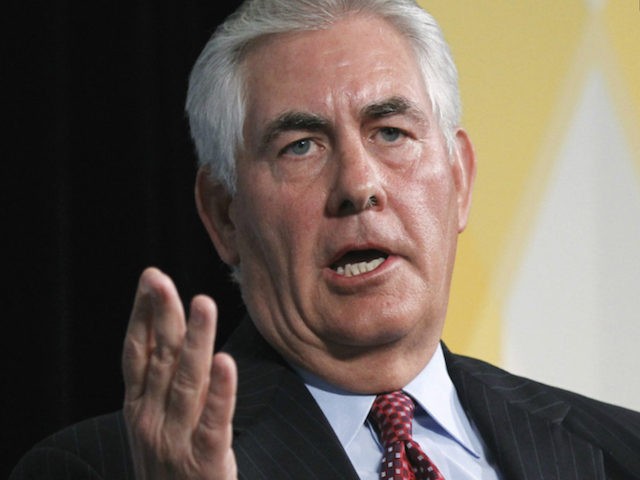The U.S. Department of State announced on Wednesday that President Donald Trump has ordered an NSC-led review of the nuclear agreement with Iran brokered in 2015.
The Joint Comprehensive Plan of Action, known more commonly as “the Iran deal,” was the result of negotiations between former President Barack Obama, members of the United Nation’s Security Council, Germany, and the EU. The NSC-led review will investigate whether lifting sanctions against the world’s top sponsor of terror may not be in the U.S. national interest.
“Iran remains a leading state sponsor of terror, through many platforms and methods,” Tillerson said in a statement issued on Wednesday. “President Donald J. Trump has directed a National Security Council-led interagency review of the Joint Comprehensive Plan of Action that will evaluate whether suspension of sanctions related to Iran pursuant to the JCPOA is vital to the national security interests of the United States.”
The State Department announcement states that the agency is certifying the action through a letter to Speaker of the House Paul Ryan.
This letter certifies that the conditions of Section 135(d)(6) of the Atomic Energy Act of 1954 (AEA), as amended, including as amended by the Iran Nuclear Agreement Review Act of 2015 (Public Law 114-17), enacted May 22, 2015, are met as of April 18, 2017.
Notwithstanding, Iran remains a leading state sponsor of terror through many platforms and methods. President Donald J. Trump has directed a National Security Council-led interagency review of the Joint Comprehensive Plan of Action (JCPOA) that will evaluate whether suspension of sanctions related to Iran pursuant to the JCPOA is vital to the national security interests of the United States. When the interagency review is completed, the administration looks forward to working with Congress on this issue.
On March 29, Gen. Joseph Votel, the head of U.S. Central Command (CENTCOM), told Congress that the U.S. needs to have military action as an option on the table given Iran’s continuing belligerence and support for terrorist groups in the Middle East and beyond.
“Iran poses the most significant threat to the Central Region and to our national interests and the interests of our partners and allies,” Votel said in his prepared testimony.
“We have not seen any improvement in Iran’s behavior since the Joint Comprehensive Plan of Action (JCPOA), addressing Iran’s nuclear program, was finalized in July 2015,” Votel said.
Votel said that, since the agreement was finalized, the U.S. military has seen a heightened number of “malign activities” on the part of Iran and its proxies in the Central Region, including “Iraq, Syria, Afghanistan, Pakistan, Yemen, Egypt, the Sinai, and the Bab-el-Mandeb Strait [located between Yemen and Djibouti and Eritrea] and in other parts of our area of responsibility.”
The Central Region, or CENTCOM AOR, covers more than 4 million square miles that includes 20 predominantly Muslim nations stretching from Northeast Africa across the Middle East to Central and South Asia.

COMMENTS
Please let us know if you're having issues with commenting.